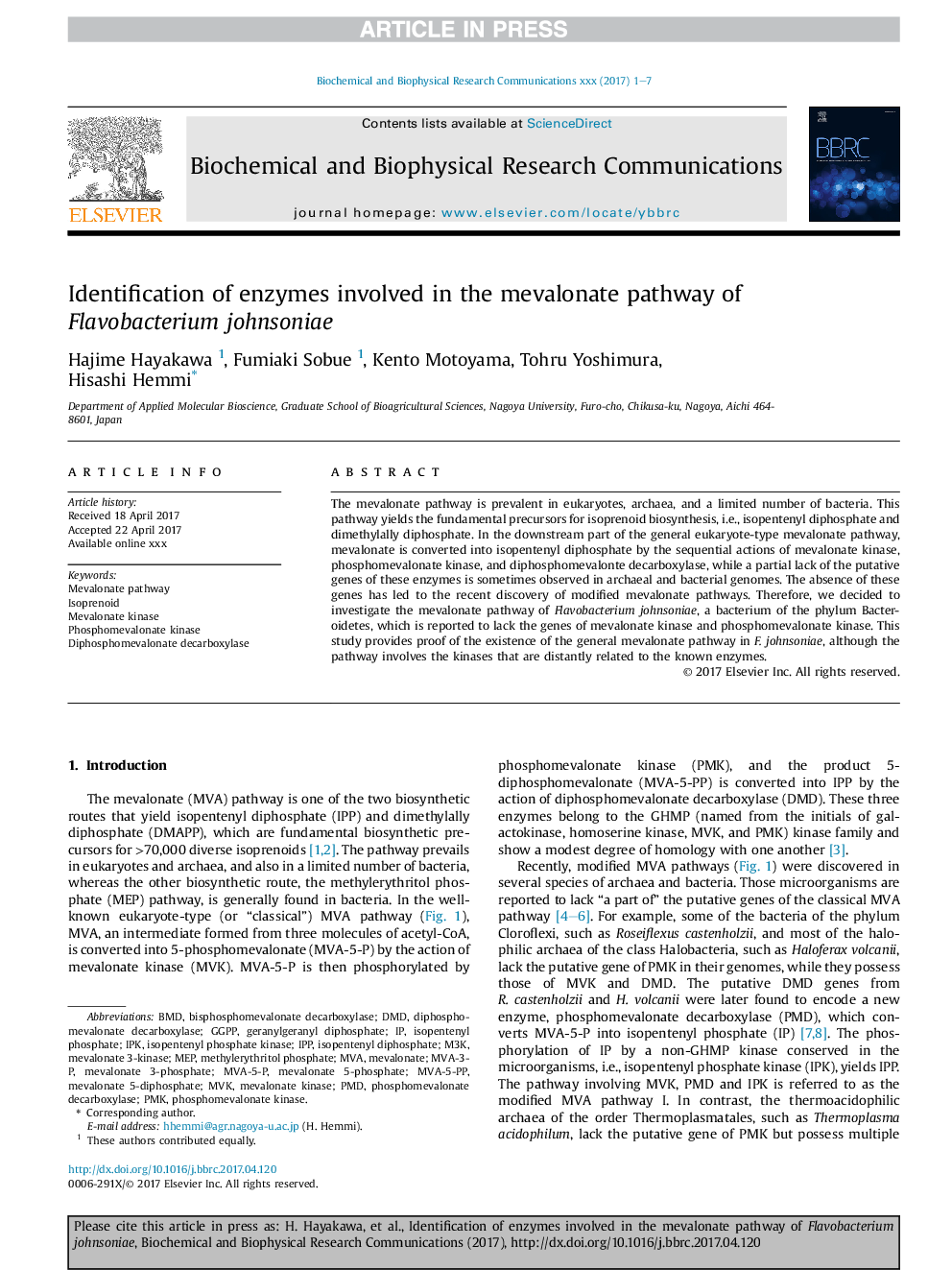| Article ID | Journal | Published Year | Pages | File Type |
|---|---|---|---|---|
| 5505867 | Biochemical and Biophysical Research Communications | 2017 | 7 Pages |
Abstract
The mevalonate pathway is prevalent in eukaryotes, archaea, and a limited number of bacteria. This pathway yields the fundamental precursors for isoprenoid biosynthesis, i.e., isopentenyl diphosphate and dimethylally diphosphate. In the downstream part of the general eukaryote-type mevalonate pathway, mevalonate is converted into isopentenyl diphosphate by the sequential actions of mevalonate kinase, phosphomevalonate kinase, and diphosphomevalonte decarboxylase, while a partial lack of the putative genes of these enzymes is sometimes observed in archaeal and bacterial genomes. The absence of these genes has led to the recent discovery of modified mevalonate pathways. Therefore, we decided to investigate the mevalonate pathway of Flavobacterium johnsoniae, a bacterium of the phylum Bacteroidetes, which is reported to lack the genes of mevalonate kinase and phosphomevalonate kinase. This study provides proof of the existence of the general mevalonate pathway in F. johnsoniae, although the pathway involves the kinases that are distantly related to the known enzymes.
Keywords
Related Topics
Life Sciences
Biochemistry, Genetics and Molecular Biology
Biochemistry
Authors
Hajime Hayakawa, Fumiaki Sobue, Kento Motoyama, Tohru Yoshimura, Hisashi Hemmi,
